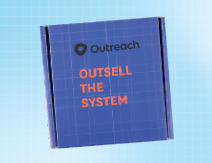
Every Employer Should Provide Masks for Their People, Here’s Why
Eric Hamlin | July 20, 2020
Six and a half months ago I watched the beginning of the Coronavirus outbreak with the typical US-centric perspective. It was a continent away, and the world had seen similar outbreaks that had been sensationalized, but ultimately contained. I was more concerned with the shutdown of our Chinese manufacturing partners, and the impact it was having on our supply chain. The idea that our company would pivot to designing and manufacturing face masks never crossed my mind.
Then Seattle, my city, recorded the first US diagnosis of COVID-19. Shelter-in-place orders spread across the country. Early on we heard reports of PPE shortages for first responders, and our sales team, looking for any way to help combat the spread, pushed for us to start sourcing N95 masks. I was resistant. It felt opportunistic and outside of our wheelhouse. I didn’t want to add to the problem by sourcing defective masks, or play a role in raising costs for hospitals by buying up any extra inventory and trying to resell it.
The virus kept spreading. My hometown became a hotspot, and my parents lost personal friends to the virus. My mom started sewing masks to give to her local hospitals and friends. The CDC changed their position on the effectiveness of cloth masks, and our CEO and sourcing team spent dozens of hours researching and refining a cloth option. There was a way we could help slow the spread of the virus without impacting the nation’s supply of PPE, so we dove in, and learned as much as we could about the space.
Today, I firmly believe that companies have an obligation to provide masks or face coverings to their employees, even if their employees continue to work remotely. There are three compelling reasons that support each other in a virtuous cycle; the benefit to society, the goodwill of employees, and the recovery of the economy.
First, I think it’s important to have some context and understanding on how public health policy is created. Officials have to balance the messiness of ethics, death rates, civil liberties, and economics. They take information from experts in those fields and come up with guidelines and recommendations. No expert in any field has a crystal ball, and the role of each expert (epidemiologist, economist or otherwise) is to provide their perspective backed by data. I recommend reading this article in The Atlantic on the role of epidemiological models. Politics aside, our response to slowing COVID-19 has been largely shouldered by local government and their varying policies. There is an opportunity for businesses to take a leadership role in containing the virus, filling in the gaps in our national response.
Here’s why I believe companies should step up, and mask up:
SOCIETY
It’s the right thing to do
Scientists agree that the virus is spread through “respiratory droplets” that can be projected when an infected person talks, sneezes or coughs. The CDC believes that 40% of virus transmission happens before someone feels sick. Reflect on that a bit. Almost half of all cases are caused by someone who doesn’t know that they are sick.
Yes, there’s a civil liberties cost to governments mandating that individuals wear face coverings, but balance that against the alternative. Ethicist Sean McKeever frames it well, writing “…since no liberty can be absolute, we need to engage in balancing tests. We need to ask: How weighty is the liberty being infringed? The liberty to not wear a mask is less weighty than the liberty to leave your home”.
There is no clear data on how masks reduce the spread of COVID-19 transmission (sorry, but this infographic is false). The research indicates that wearing masks can reduce the spread of the virus, but (surprise) it isn’t perfect. There is controversy over several research papers on the subject (here’s a good primer in Vox). It’s important to recognize that science is really f***ing hard, and particularly so during a pandemic in an election year.
But the potential benefit to society is high, so high that I would argue that even if wearing a face covering reduced transmission risk by a nominal amount (say 5%), it still is the ethical, moral, and right thing to do. And I’m not alone – the CDC, WHO, Democrats, and Republicans alike all recommend face coverings.
EMPLOYEES
It’s your obligation
What I’m advocating is an expansion on doing just the bare minimum. If your employees are deemed essential, you 100% should be providing masks. But you should also provide masks to your remote workers.
Companies have an obligation to their employees; not to just meet the minimum legal safety requirements, but to provide a space that fosters positivity, creativity, and growth. Employees that feel supported by their employer are healthier and perform better over the longer term. If that’s not compelling enough, then think about the short term. More masks mean less spread, which ultimately means fewer sick employees.
Returning to societal impacts for a moment, I invite you to consider where your employees are located and the varying levels of mask acceptance from community to community. In some of the communities where our employees work, less than half of people wear a mask during an outing – businesses can be a driving force behind increasing both accessibility and acceptability of wearing a mask in public.
ECONOMY
It’s good for business
No surprise, but most companies rely on a strong economy to thrive. Generally speaking, pandemics are not good for business. Goldman Sachs’ Chief Economist published a report showing that a national facemask mandate is a powerful substitute for renewed lockdowns, and that the mandate could bypass a 5% reduction in US GDP. The fundamental driver then for why businesses should be providing face coverings to their employees is pure economics. The per employee cost for providing 7 Kotis masks (enough for one every day of the week) is about 3 grande lattes at Starbucks (less than $15).
Finally, and if none of the other reasons have provoked change, remember that masks can be a branding play. This afternoon my UPS driver had a branded mask. It completes the uniform, and signals to the general public that there has been a deliberate attempt at public safety within their organization. That’s powerful.




